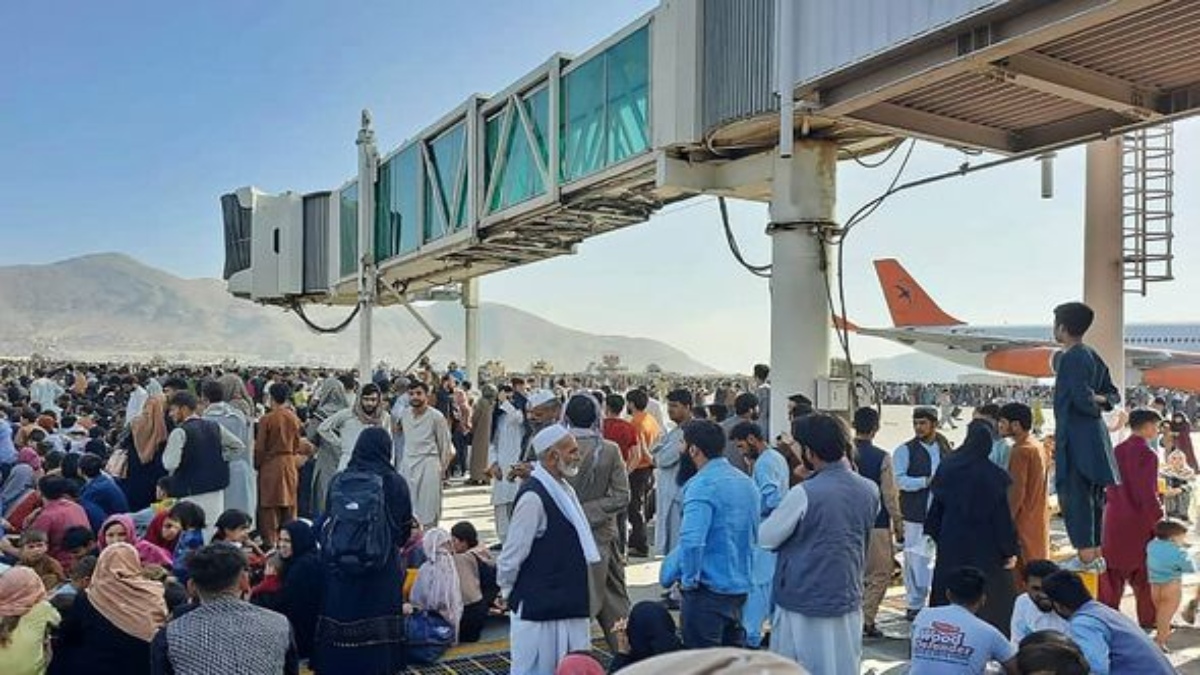


With the Kabul airport shutting down after US troops completely withdrew from Afghanistan on 31 August, the fearful Afghans wanting to flee the country are now flocking to the borders with Iran, Pakistan and Central Asian states.
The Taliban are in talks with Qatar and Turkey on how to run Kabul’s airport, according to French Foreign Minister Jean-Yves Le Drian. It could, however, take days or weeks to finalise the ongoing negotiations.
At Torkham, a major border crossing with Pakistan just east of the Khyber Pass, Reuters quoted a Pakistani official as saying: “A large number of people are waiting on the Afghanistan side for the opening of the gate.”
As per the agency, thousands also gathered at the Islam Qala post on the border with Iran.
“I felt that being among Iranian security forces brought some kind of relaxation for Afghans as they entered Iran, compared with the past,” one Afghan among a group of eight that crossed over was quoted as saying.
Uzbekistan’s land border with northern Afghanistan remained closed, but its government said it would assist Afghans in transit to Germany by air, once flights resume.
In a resolution on Monday, the UN Security Council urged the Taliban to permit safe passage for those seeking to leave, but did not mention the creation of a safe zone, a step backed by France and others.
The Taliban have declared an amnesty for all Afghans who worked with foreign forces during the war that ousted them from power in 2001 for their refusal to hand over al Qaeda leader Osama bin Laden after the 9/11 attacks.
Taliban leaders have also called on Afghans to return home and help rebuild, while promising to protect human rights, in an apparent bid to present a more moderate face than their first regime, known for its brutal enforcement of radical Islamic law.
The militia made similar promises upon seizing power in 1996, only to publicly hang a former President, ban women from education and employment, enforce strict dress codes and adopt a punitive approach to the people of Kabul.
Last month, in their first-ever presser after taking over Kabul, the Taliban had assured that the group is committed to providing women with their rights based on Islam. “Taliban are committed to providing women with their rights based on Islam. Women can work in the health sector and other sectors where they are needed. There will be no discrimination against women,” said Taliban spokesperson Zabihullah Mujahid.
However, after coming to power last month, the group backtracked from its assurances to respect women’s rights in Afghanistan and announced a ban on co-education. This comes a day after Shaikh Abdulbaqi Haqqani was appointed as the acting minister of higher education in Afghanistan.
Taliban officials had said that there is no alternative justification for continuing co-education and the practice must be halted. The newly appointed education minister has said that education activities will take place according to the Sharia.
One woman said she saw Taliban fighters beating women with sticks outside a bank in the Afghan capital on Tuesday. “It’s the first time I’ve seen something like that and it really frightened me,” the 22-year-old told Reuters, on condition of anonymity, because she feared for her safety.